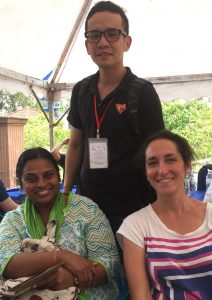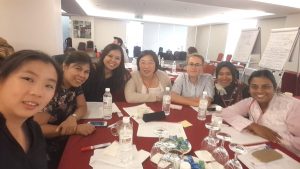[fusion_builder_container hundred_percent=”no” equal_height_columns=”no” menu_anchor=”” hide_on_mobile=”small-visibility,medium-visibility,large-visibility” class=”” id=”” background_color=”” background_image=”” background_position=”center center” background_repeat=”no-repeat” fade=”no” background_parallax=”none” parallax_speed=”0.3″ video_mp4=”” video_webm=”” video_ogv=”” video_url=”” video_aspect_ratio=”16:9″ video_loop=”yes” video_mute=”yes” overlay_color=”” overlay_opacity=”0.5″ video_preview_image=”” border_size=”” border_color=”” border_style=”solid” padding_top=”” padding_bottom=”” padding_left=”” padding_right=””][fusion_builder_row][fusion_builder_column type=”1_1″ layout=”1_1″ background_position=”left top” background_color=”” border_size=”” border_color=”” border_style=”solid” border_position=”all” spacing=”yes” background_image=”” background_repeat=”no-repeat” padding=”” margin_top=”0px” margin_bottom=”0px” class=”” id=”” animation_type=”” animation_speed=”0.3″ animation_direction=”left” hide_on_mobile=”small-visibility,medium-visibility,large-visibility” center_content=”no” last=”no” min_height=”” hover_type=”none” link=””][fusion_text] According to Maslow’s Hierarchy of Needs, food is one of the fundamental physical requirements for human survival and it is at the most basic level of needs which must be met. Food security, as defined by the United Nations’ Committee on World Food Security, is essential to ensure all people, at all times, have physical, social, and economic access to sufficient safe and nutritious food so that they can lead an active and healthy life. A changing climate, growing global population, rising food prices, and environmental stressors will have significant impacts on food security.  Dr Sangeetha Shyam and Dr Chang Sui Kiat, lecturers from the Division of Nutrition and Dietetics, School of Health Sciences, International Medical University (IMU) attended Newton Fund Southeast Asia Regional Researcher Links Workshop held at Tan’Yaa Hotel, Cyberjaya from 16 to 20 July 2018. Dr Sangeetha and Dr Chang were among the 2 participants selected from the 9 Malaysian participants, out of a total of 26 participants who are not only from Malaysia, but also from Philippines, UK, Indonesia, Vietnam, and Thailand who attended this workshop.
Dr Sangeetha Shyam and Dr Chang Sui Kiat, lecturers from the Division of Nutrition and Dietetics, School of Health Sciences, International Medical University (IMU) attended Newton Fund Southeast Asia Regional Researcher Links Workshop held at Tan’Yaa Hotel, Cyberjaya from 16 to 20 July 2018. Dr Sangeetha and Dr Chang were among the 2 participants selected from the 9 Malaysian participants, out of a total of 26 participants who are not only from Malaysia, but also from Philippines, UK, Indonesia, Vietnam, and Thailand who attended this workshop.  The theme for the workshop was Climate Change and Urban Food Security: Innovative Design for Sustainable Food Systems to Improve Nutrition and Health. The workshop was jointly organised by Universiti Putra Malaysia (UPM), University of Leeds, Newton-Ungku Omar Fund (NUOF), British Council, and Akademi Sains Malaysia (ASM). Rapid urbanisation in South-East Asia has many impacts on economic growth, society and sustainability. Essentially, it also changes people’s access to and the availability of food. Therefore, it has become a significant challenge for rapidly growing cities to ensure food security. Due to the high costs of living in urban areas, people with low incomes are highly vulnerable to food insecurity and the double burden of malnutrition (the low intake of nutrients and high intake of calories). Hence, providing sustainable and healthy food is a pre-requisite for ensuring the urban poor have a healthier diet and better quality of life. The efforts require interdisciplinary and cross-sectoral framing and knowledge exchange.
The theme for the workshop was Climate Change and Urban Food Security: Innovative Design for Sustainable Food Systems to Improve Nutrition and Health. The workshop was jointly organised by Universiti Putra Malaysia (UPM), University of Leeds, Newton-Ungku Omar Fund (NUOF), British Council, and Akademi Sains Malaysia (ASM). Rapid urbanisation in South-East Asia has many impacts on economic growth, society and sustainability. Essentially, it also changes people’s access to and the availability of food. Therefore, it has become a significant challenge for rapidly growing cities to ensure food security. Due to the high costs of living in urban areas, people with low incomes are highly vulnerable to food insecurity and the double burden of malnutrition (the low intake of nutrients and high intake of calories). Hence, providing sustainable and healthy food is a pre-requisite for ensuring the urban poor have a healthier diet and better quality of life. The efforts require interdisciplinary and cross-sectoral framing and knowledge exchange.
This workshop was held with the main objective to develop a collaborative network of researchers across UK and SEA to plan innovative designs to promote sustainable and healthy urban food systems for improved nutrition and health status. The programmes for this workshop covered a wide range of lectures on the current global issues on food security, stakeholder meeting, site visit to the urban poor communities in Kuala Lumpur, presentation on the “Golden rules for successful grant proposal writing”, as well as a mentor-mentee sharing session on career development.
This workshop provided the researchers with the opportunity to interact with local communities, government agencies and other stakeholders, within a participatory action research framing. The workshop had impacted the researchers to understand problems and construct solutions in order to provide healthier food which is sustainable in an urban setting for the poor, and thereby ultimately reduce inequality. What our Lecturers think about this Workshop [/fusion_text][fusion_table]
| Dr Sangeetha Shyam MSc (Foods and Nutrition), PhD (Medical and Health Sciences, Specialisation: Clinical Nutrition) |
|---|
| To be mentored by Profs Tim Benton and Janet Cade (University of Leeds) and A/Prof Kiitti Sranacharoenpong (Mahidol University) is an unforgettable experience! This workshop was attended by a diverse group of determined early career researchers, and its structure enabled us to share and learn from each other’s’ experience. After attending this workshop, I appreciate how seamlessly Nutrition fits into a wider context of food policy, environment and even planetary health. The team work sessions helped me discover the challenges peculiar to working in a multi-disciplinary team and ways to overcome them. Thus while obesity and insulin resistance may continue to be my research focus, the lens through which I study these nutritional issues may now gain a more panoramic view. Tiny gems of advice strewn by the mentors throughout the 5-day workshop, such as “do something that is important for “your” career everyday” or “be willing to reinvent yourself” have had a profound influence on my approach to work. I am thankful to all the sponsors and organisers of the workshop and IMU for making this possible. Though applying to this workshop requires some homework, and the wait to see whether you are chosen is in itself can be excruciatingly painful, I would definitely encourage early career researchers to jump in and have a taste of this wonderful experience! |
[/fusion_table][fusion_table]
| Dr Chang Sui Kiat BS (Nutrition and Community Health) (Hons), PhD (Nutritional Sciences, Specialising in Nutritional Biochemistry) |
|---|
| Half-seminar, half-retreat, my five days with Prof Tim, Prof Janet and Dr. Kitti were filled with discovery, rejuvenation, connections with both human and otherwise, as well as a journey that makes me see our academic life in a whole new way. Such a positive atmosphere with outstanding academic mentors and a fantastic group of people coming together to find creativity. The people were as diverse as the activities, a complete experience in itself. I learned new ways in bringing forth inspiration and motivation from within, which is a totally different encounter from my daily routine of lecturing life. ‘If you are stuck in your job, or your routines, or your imagination, sign up for this kind of workshop. This is not to be missed!’ |
[/fusion_table][fusion_images picture_size=”auto” hover_type=”none” autoplay=”no” columns=”5″ column_spacing=”13″ scroll_items=”” show_nav=”yes” mouse_scroll=”no” border=”yes” lightbox=”no” hide_on_mobile=”small-visibility,medium-visibility,large-visibility” class=”” id=””][fusion_image image=”https://www.imu.edu.my/media/2018/08/Photo-7.jpeg” image_id=”29853″ link=”” linktarget=”_self” alt=”” /][fusion_image image=”https://www.imu.edu.my/media/2018/08/Photo-5.jpg” image_id=”29852″ link=”” linktarget=”_self” alt=”” /][/fusion_images][fusion_table]
| About Newton-Ungku Omar Fund (NUOF) |
|---|
| The Newton-Ungku Omar Fund (NUOF) is an integral component of the Newton Fund. It forms part of the UK’s official development assistance programme, to develop science and innovation partnerships that promote economic development and social welfare of developing countries. The NUOF is delivered by a number of UK Delivery Partners including the British Council, Malaysia. From 2014 until 2016, the British Council, Malaysia delivered four main programmes of Newton Fund, namely Institutional Link (IL), Researcher Link (RL), STEM Education (STEM), and Professional Development and Engagement (PDE), in collaboration with MIGHT, Academy of Sciences Malaysia, Ministry of Higher Education, and Ministry of Education as part of the Science to Action (S2A) Malaysia government initiative. The programmes aimed to increase understanding and knowledge of people on science and innovation and pave the path towards positive environment for research and research transition. Starting 2017, the British Council Malaysia is having the main focus in establishing connections that encourage innovation and research translation in Malaysia under NUOF. In line with the aim, NUOF programmes that will be delivered are Institutional Link (IL), Researcher Link (RL), and Professional Development and Engagement (PDE). |
[/fusion_table][fusion_table]
| About Researcher Links |
|---|
| Researcher Links Workshop was launched in 2013 and runs in around 15 other countries globally. It serves to bring together early-career researchers from the UK and other countries to allow them to make international connections that can improve the quality of their research and open doors to new international opportunities. Regional Researcher Links workshops extend the benefits of bi-lateral research relationships across a broader region and enable the development of regional networks of expertise to benefit all involved. The themes for the workshop will be chosen in line with the priorities of the partner countries involved in the workshop. New international collaborations, networks and projects have already been formed directly from the workshops conducted thus far. |
[/fusion_table][/fusion_builder_column][/fusion_builder_row][/fusion_builder_container]

